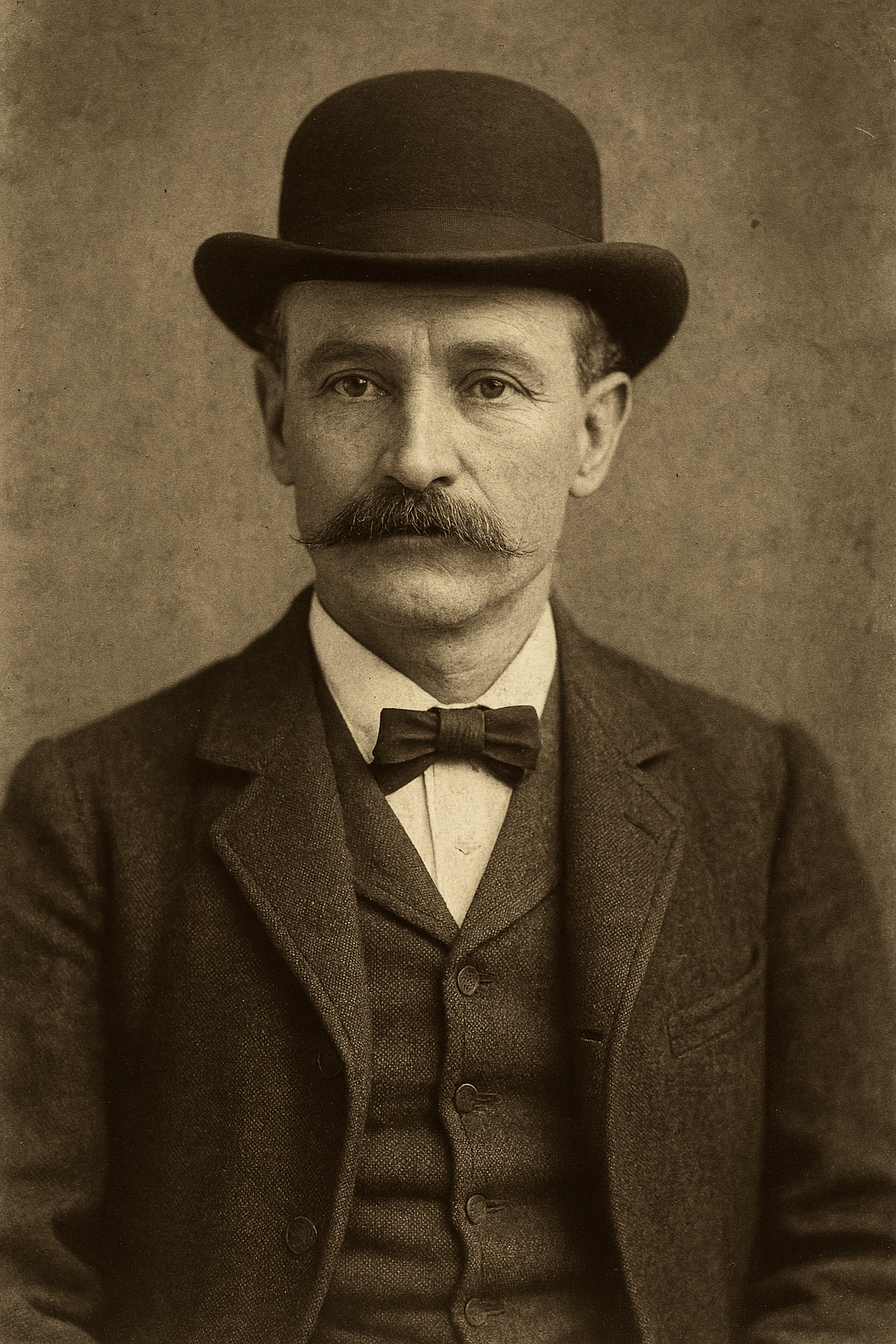
Black Bart
Black Bart, the Gentleman Bandit
the inspiration behind the cider
Charles Earl Boles was a man of many names. He was born in England, but moved to America as a young boy. He fought in the Civil War, but deserted after being wounded. He tried his hand at mining, but found little success. He settled down with a wife and four children, but left them behind to seek his fortune in the West. He became known as Black Bart, the gentleman bandit.
Black Bart was not like other outlaws. He did not use violence or guns. He did not ride a horse or have a gang. He did not even have a mask or a disguise. He simply wore a dapper bowler hat, a fancy suit, and polished shoes. He would wait by the side of the road, holding a shotgun and a flour sack. When a stagecoach approached, he would politely ask the driver to toss down the strongbox containing the gold and valuables. He would then leave behind a poetic note, signed “Black Bart, the Po8.”
Black Bart’s poetic notes were his trademark. They were witty and sarcastic, mocking the law and the stagecoach companies. They also revealed his motivation: he was driven by revenge against the Wells Fargo company, which he blamed for his losses in mining. His most famous note read: “I’ve labored long and hard for bread, for honor, and for riches; but on my corns too long you’ve tred, you fine-haired sons of bitches.”
Black Bart’s exploits made him a legend in the Old West. He robbed 28 stagecoaches in eight years, from 1875 to 1883. He eluded capture by traveling on foot and by train, using aliases and disguises. He was feared by some, admired by others, and respected by all. He became a folk hero, inspiring songs and stories.
But Black Bart’s luck ran out in 1883. He attempted one last robbery near Copperopolis, California. However, this time, he was confronted by a detective named James Hume, who had been tracking him for years. Hume had analyzed Black Bart’s poetic notes and found clues to his identity and location. He had also planted a spy on the stagecoach, who alerted him of Black Bart’s presence. Hume and his men surrounded Black Bart and arrested him.
Black Bart’s capture shocked the public. They were amazed to discover that he had never fired his shotgun, which was loaded with birdshot and buckshot, if functional at all. They were amused to find that he had kept a scrapbook of newspaper clippings about his robberies.
Black Bart was sentenced to six years in prison, but was released after four for good behavior. He disappeared from public view, leaving behind a mystery. Some say he died of old age in a boarding house. Some say he reunited with his family in New York. Some say he resumed his robberies under a new name.
Whatever his fate, Black Bart’s legacy lives on as one of the most intriguing figures in Western lore. His audacity, wit, and poetic flair continue to captivate storytellers and historians alike. His tale is one of adventure, humor, and mystery. It is the tale of Black Bart, the gentleman bandit who left behind both stolen gold and poetic verses on the dusty trails of the Old West.

